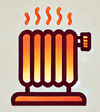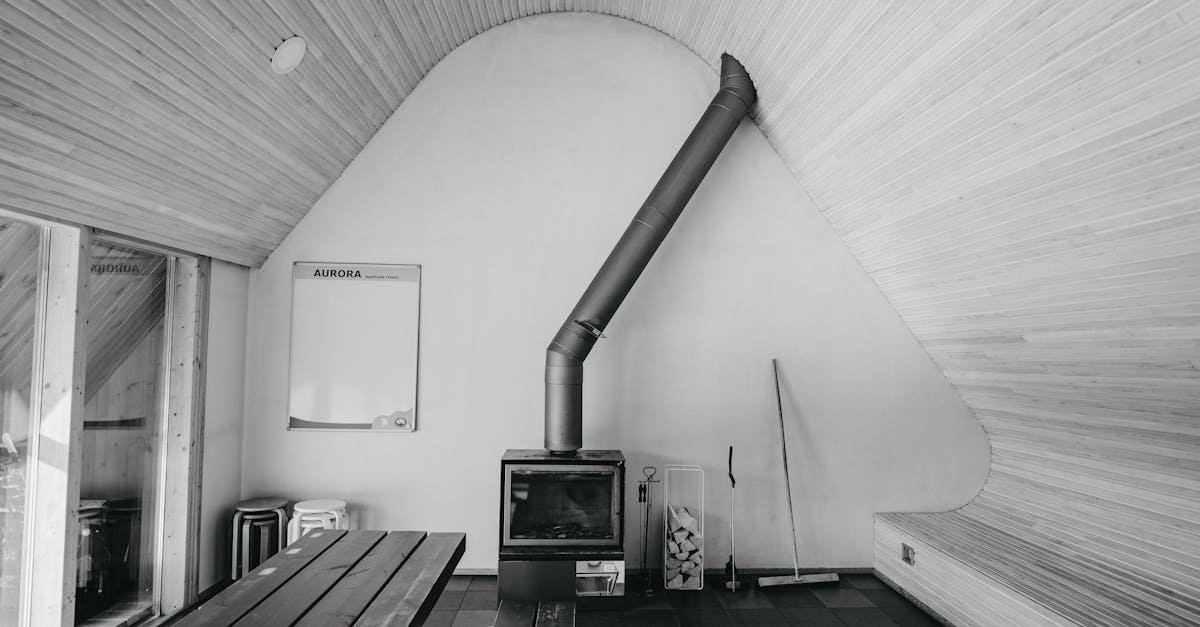To keep your quiet heater running smoothly, focus on regular cleaning, checking filters, and scheduling professional inspections. Dust and debris can accumulate, affecting efficiency and noise levels. Make it a habit to clean or replace filters every month to ensure optimal airflow.
Also, inspect the heater’s vents and ducts for blockages and ensure they’re clear. Scheduling a professional inspection at least once a year can help catch any potential issues before they become costly repairs. By following these simple maintenance tips, you can enjoy a warm, quiet home all winter long.
Understanding Quiet Heaters
Quiet heaters help maintain comfort in your home without the noise. They include various types, from central heating systems to electric space heaters. Regular maintenance ensures they operate efficiently and quietly.
Types of Quiet Heaters
- Central Heating Systems: These systems heat your entire home. Making them quieter involves cleaning or replacing air filters regularly. Calibrating the thermostat correctly also helps. Sealing drafts and leaks around your home reduces noise as well.
- Electric Space Heaters: These compact heaters target specific areas. To keep them quiet, clean the exterior surfaces often. Removing dust and lint allows for better airflow, reducing noise.
- Convection Heaters: These work by circulating warm air in the room. They’re typically quieter than other heater types. They operate efficiently with minimal noise when maintained properly.
Benefits of Quiet Heaters
Quiet heaters provide a peaceful environment. They minimize distractions, allowing for a more comfortable space. Plus, they often operate more efficiently, saving energy and money. Regular maintenance enhances their lifespan, providing long-term comfort.
Essential Maintenance Tips
Maintaining your heater ensures it runs quietly and efficiently. Follow these essential tips to keep your system in top shape.
Regular Cleaning
For electric space heaters, clean exterior surfaces every two weeks. Remove dust and lint, especially around air entry and exit points. Use a soft cloth for this task. For radiant heaters, vacuum the intricate openings regularly. Aim for deep cleaning once a year. Disconnect the heater from the power source. Use compressed air to clear dust from the heating elements, fan blades, and electronic components. Wipe the inside of the unit’s panel with a damp cloth.
Checking for Obstructions
Check air filters monthly. Clean or replace them as needed to maintain efficient airflow. Inspect vents and ducts for any blockages. Clear away debris that can hinder performance. Prioritize these tasks to ensure your heater operates quietly and effectively.
Seasonal Maintenance Checklist
Maintain your quiet heater effectively with a seasonal maintenance checklist. This ensures it operates quietly and efficiently, keeping your home comfortable.
Preparing for Winter
Inspect your heater before winter. Check all components, including vents and filters. Replace or clean filters monthly for optimum airflow. Remove dust and lint from exterior surfaces every two weeks. Focus on entry and exit points, like the bottom and slats of convection and fan-forced heaters. For radiant heaters, use a vacuum to clean intricate openings. These steps prevent noise and ensure your heater runs smoothly when temperatures drop.
End of Season Maintenance
Once winter ends, conduct essential end-of-season maintenance. Disconnect the heater from its power supply. Use compressed air to clear dust from heating elements, fan blades, and electronic components. Wipe down the interior of the unit’s panel with a soft, damp cloth. This deep cleaning helps extend the heater’s lifespan and maintains quiet operation for the next season. Store portable heaters in a dry place to protect them from moisture and dust buildup during the off-season.
Troubleshooting Common Issues
Troubleshooting common heater issues ensures a quiet and efficient operation. Focus on identifying noise problems and resolving performance issues.
Identifying Noise Problems
Identify unusual sounds from your heater. Listen for banging, clicking, or rattling. Banging often indicates loose parts. Clicking may signal electrical issues. Rattling can stem from debris or loose screws.
Check for obstructions around the heater. Remove any furniture or curtains blocking airflow. Inspect the unit for loose panels. Tighten any screws or bolts as needed. Regular checks help maintain quiet operation.
Resolving Performance Issues
Address performance issues promptly. If your heater doesn’t warm the room efficiently, check the thermostat. Ensure it’s set correctly. If it’s programmable, confirm the schedule aligns with your needs.
Inspect filters as well. Clogged filters restrict airflow and force the heater to work harder. Replace or clean filters every 1-3 months. Look at the vents and ducts, too. Clear any blockages to improve air circulation.
Get professional help if problems persist. A technician can conduct detailed diagnostics and repairs. Regular maintenance ensures your heater runs smoothly, so keep an eye on these common issues.
When to Call a Professional
Recognizing when to call a professional enhances your heater’s performance. Certain signs indicate that expert help is needed.
- Persistent Noises: If your heater produces consistent banging, clicking, or rattling noises, seek professional evaluation. Unusual sounds often signal internal issues.
- Strange Odors: Detecting burning smells or gas odors points to potential problems. It’s crucial to address these immediately to ensure safety.
- Inadequate Heating: When rooms remain cold even though working heaters, call a technician. Inconsistent heat distribution often indicates system faults.
- High Energy Bills: Noticeably increased energy bills without added usage suggests inefficiencies. A professional can identify underlying energy-wasting issues.
- Frequent Breakdowns: If your heater requires repairs often, it’s time to consult an expert. Frequent failures indicate deeper, chronic problems.
- Old Age: Heaters over 15 years old benefit from professional inspection. Aging systems often need upgrades for optimal efficiency.
Calling a professional in these situations ensures proper diagnosis and maintenance, contributing to your heater’s long-term reliability and efficiency.
Conclusion
Regular maintenance of your quiet heater is key to ensuring it runs smoothly and efficiently. By following the tips outlined, you can avoid common issues and extend the lifespan of your unit. Remember to keep an eye on filters and vents while also scheduling professional inspections when needed.
Taking these proactive steps not only enhances your heater’s performance but also creates a peaceful environment in your home. A well-maintained heater will keep you warm without the annoying noises that can disrupt your comfort. Prioritize your heater’s care and enjoy the benefits of a quiet and cozy space all winter long.








